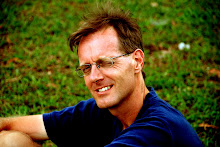With the rapid decline of global oil supplies, the United States is heading for an economic crash unlike anything since the 1930s. And the collapse of the dollar will affect every nation on earth.
This is the chilling warning from academic Richard Heinberg of the New College of California. Heinberg is in Cape Town this week to share his views on what governments and societies need to do to mitigate the imminent global crisis after world oil production peaks.
He sketches four main options available in response:
1. Following the US leadership in competing for remaining resources through wars;
2. Wishful thinking that the market or science will come to the rescue;
3. Assuming that we are already in the early stages of disintegration, devoting our energies to preserving the most worthwhile cultural achievements of the past few centuries.
4. "Powering down" - reducing energy resource use drastically through economic sacrifice, reducing the population size and developing alternative energy sources.
"The sooner we choose wisely, the better off we and our descendants will be," Heinberg said.
http://www.capetimes.co.za/general/print_article.php?fArticleId=2505413&fSectionId=271&fSetId=520















